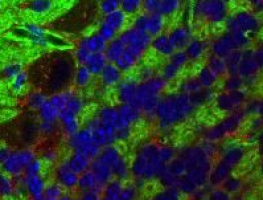
by ecancer Science Editor Dr Linda Cairns
Mammographic screening for breast cancer is controversial.
Screening likely reduces breast cancer mortality but can also lead to over-diagnosis and overtreatment.
A variety of estimates of the benefits and harms of mammographic screening for breast cancer have been published.
In 2009 an extensive analysis of 8 eligible randomised trials comparing mammographic screening with no mammographic screening was published by the Nordic Cochrane Centre (Cochrane Database Syst Rev. 2009;(4):CD001877).
In this paper the authors concluded that that for every 2000 women invited for screening throughout 10 years, only one will have her life prolonged whereas 10 healthy women, who would not have been diagnosed if there had not been screening, will be treated unnecessarily.
However data presented by Prof. R. Peto today at the 8th European Breast Cancer Conference (EBCC-8) indicate that these figures may be severely underestimated and that the absolute gain from breast cancer screening, based on the ‘NHS Breast Cancer Screening program’ would be closer to 0.5% i.e. 1 in 200.
So why is there such a big discrepancy between the two studies?
Peto explained that this is because of two factors:
The Nordic Cochrane Centre study was based on a population of unscreened women, mostly in their 40s. In this age bracket the cumulative risk of death from breast cancer is only 0.3%. Assuming a proportional reduction of 15% from 10 years of being invited for screening, the overall reduction can be calculated to be 1 in 2000.
However in our study we considered women aged 55-79 as It is mainly the deaths in this age bracket that would be affected by the NHSBSP, since whatever age screening starts it must take a few years before it has any material effect on mortality.
In this age bracket the cumulative risk of death from breast cancer would be 2.4%. Also we assumed a proportional reduction of 25% from 10 years for individuals actually being screening and not 15% for individuals invited to be screened. So for a woman who completed all her screening, with an assumed proportional reduction of 25% and the cumulative risk would be reduced from about 2.4% to 1.8%, an absolute gain of 0.6%. Allowing for the effects of deaths from other causes, the absolute gain would become about 0.5% (i.e. 1 in 200).